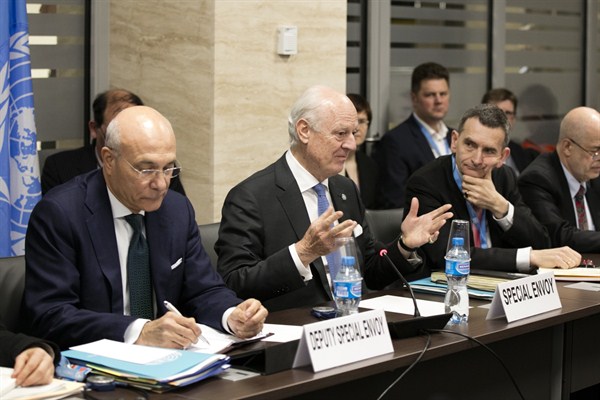Loading your audio article
This week, three of the United Nations’ thankless peace missions—in Libya, Yemen and Syria—will mark steps forward. To be sure, the definition of success is modest. For now, just reducing violence and beginning a political process is the best that one can hope for. But the U.N. deserves credit for persevering and nudging the parties along.
Even as U.N. negotiators, sometimes with the ambiguous help of the great powers and regional leaders, begin cajoling the warring parties in the Middle East’s three terrible crises to compromise, the prospects for real peace are distant. The U.N. process not only aims to stop the fighting, but also to bring all the political actors into a process to reform or replace governments that were culpable or incapable. That’s a long slog. Building new institutions, fostering economic development, facilitating the return of refugees, and addressing questions of justice and reconciliation are all also necessary components of a stable peace, but they usually have to wait for basic conditions of security and a legitimate governing structure to be restored.
In Libya, there’s now action to implement a mid-December agreement between the country’s two competing forces. A new National Unity Government is in formation, and a presidency council let by interim Prime Minister Fayez Sarraj arrived in Tripoli on April 1, awaiting the formal endorsement by the two sides of the arrangement, which now enjoys international recognition. The former contestants for power are showing no enthusiasm for the new state of affairs, however, and the U.N. will need to be careful to keep their disenchantment from triggering a return to all-out violence or from undermining the new government in other ways. How Egypt and other outside powers handle their ally, Gen. Khalifa Haftar, and the anti-Islamist forces he commands will also be a critical factor in consolidating this latest achievement.

